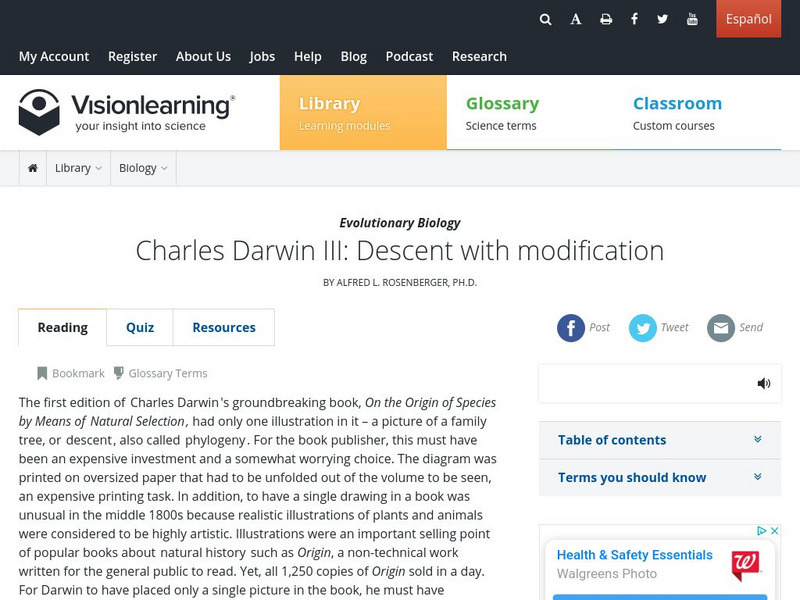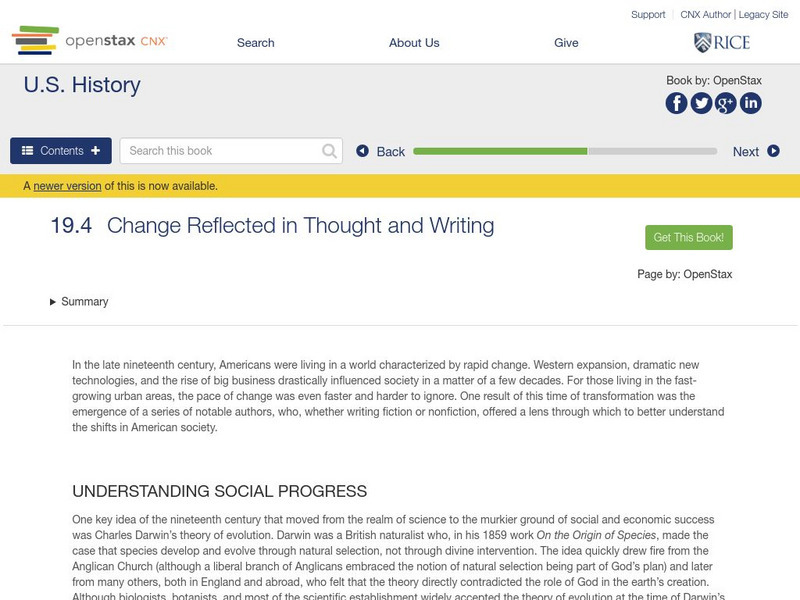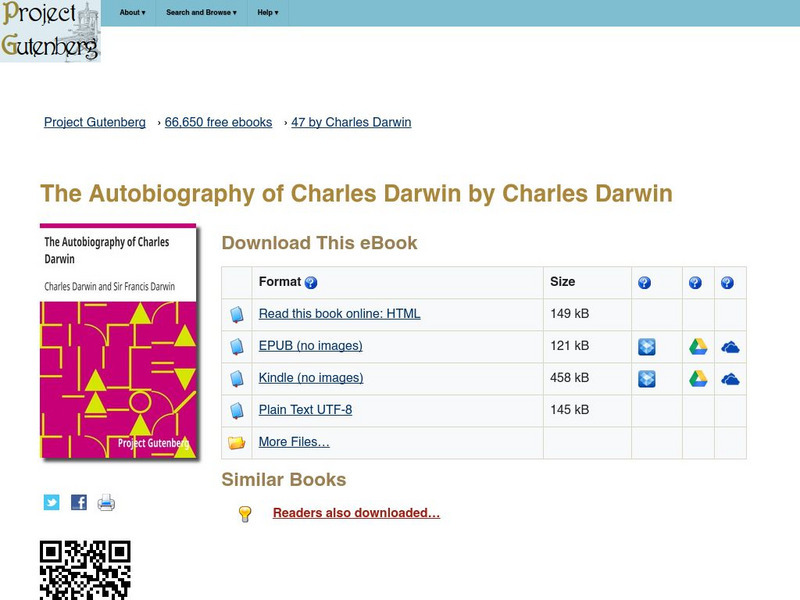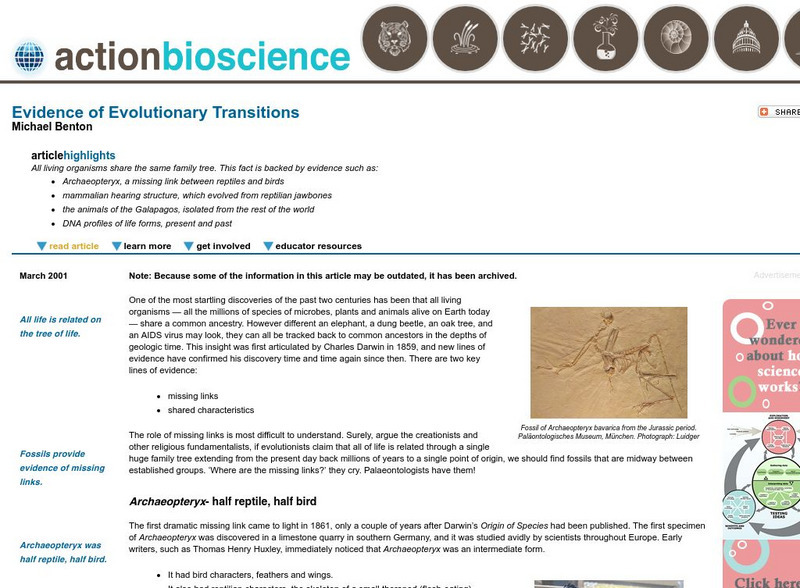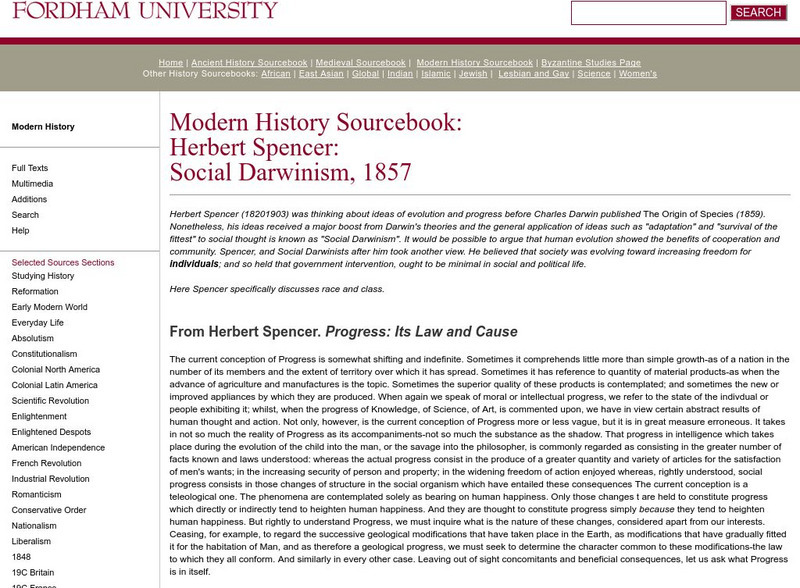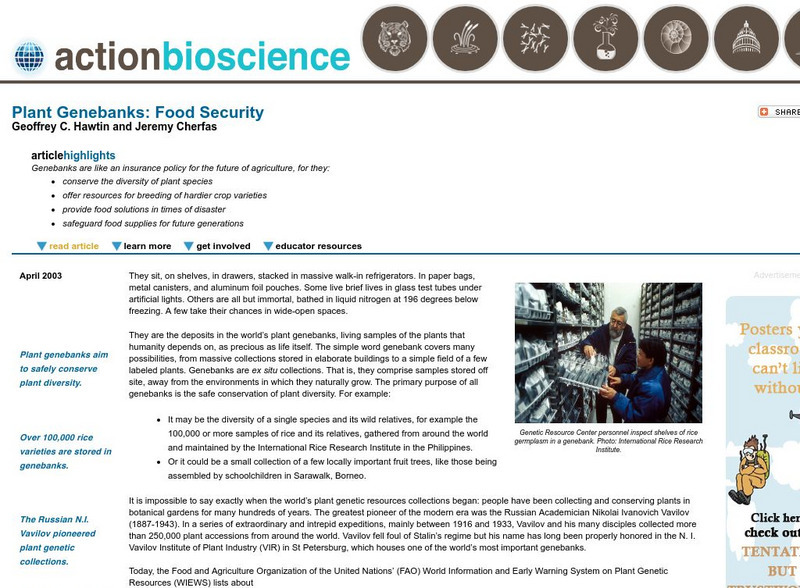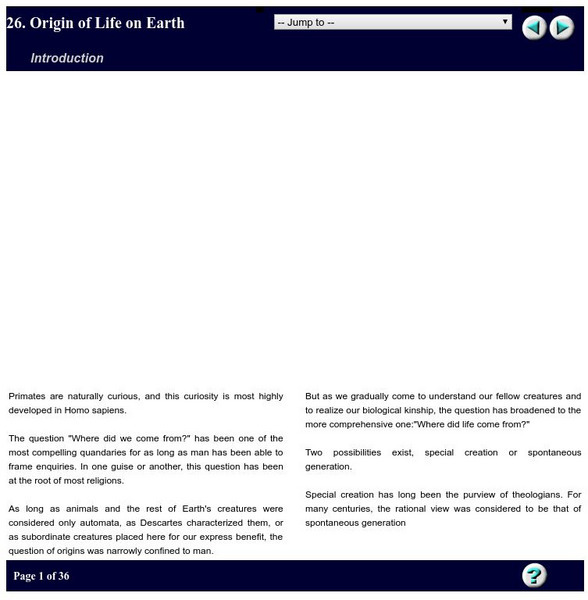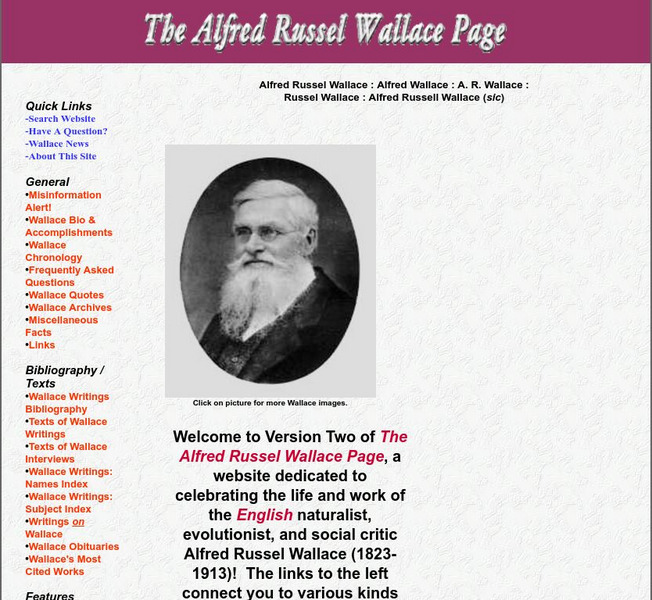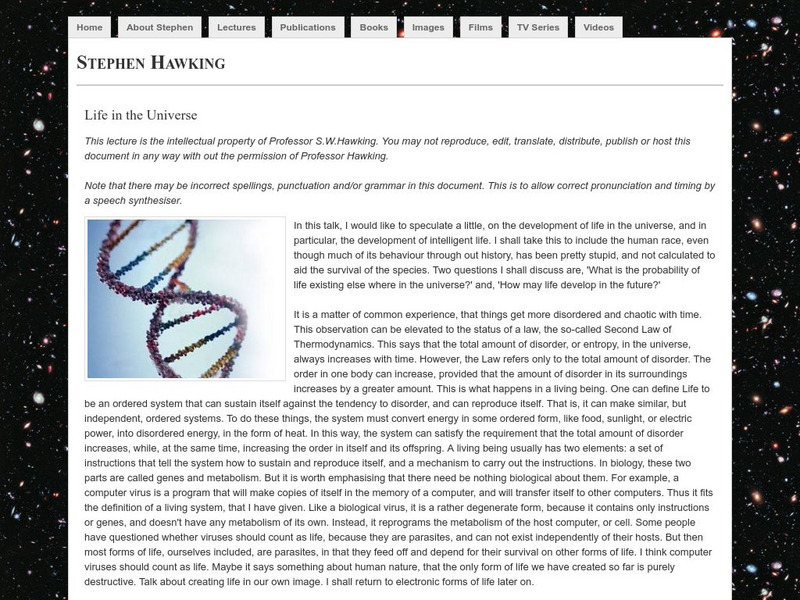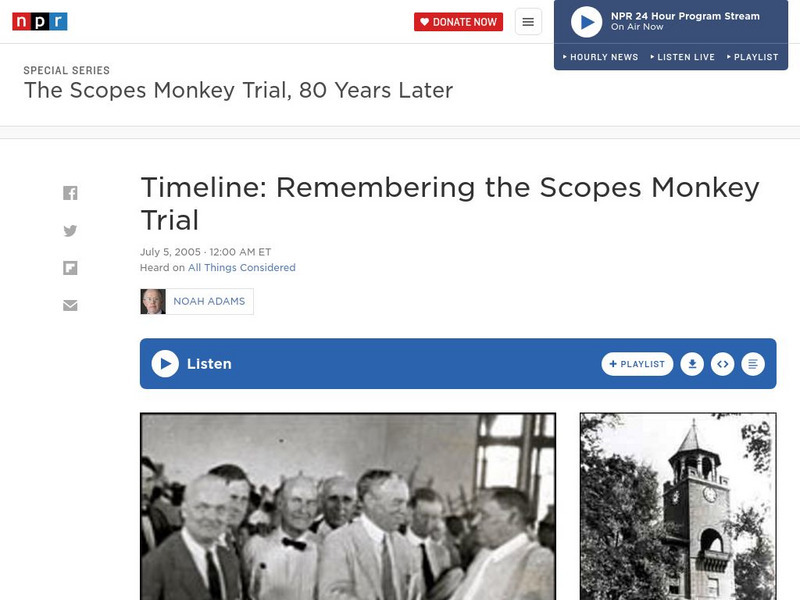CK-12 Foundation
Ck 12: Episd: Biogeography
[Free Registration/Login may be required to access all resource tools.] Why connect biology and geography? This module will provide resources for students to understand continental drift theory, human population and its distribution, and...
Vision Learning
Visionlearning: Biology: Charles Darwin Iii: Descent With Modification
Instructional module focusing on Charles Darwin's theory of Descent with Modification. Discusses how slight changes from parent to offspring create variation and potentially create new species over time. Site also includes an interactive...
BBC
Bbc: Bitesize: Gcse Music
GCSE Music provides links to a variety of music topics including composers, composing music, music theory, music technology, performing and evaluating music, music styles, world music, and traditional music from the UK.
Cornell University
Cornell University: Library: Charles Darwin After the Origin
In honor of Darwin's 200th birthday and the 150th anniversary of the publication of "The Origin of the Species," Cornell has put together an extensive collection of Darwin's work during the last two decades of his life.
OpenStax
Open Stax: Urbanization 1870 1900: Change Reflected in Thought and Writing
American writers and intellectuals played an important role in articulating the changes taking place in Industrial America in the late 1800s and early 1900s. Learn about some of the prominent writers, scientists, and philosophers at that...
Project Gutenberg
Project Gutenberg: The Autobiography of Charles Darwin
Resource presents multiple digital formats of this literary text. You can read about the famous scientist's life in his own words, as he recalled his thoughts and actions for his children.
Biology Corner
Biology Corner: Peppered Moths Simulation
This simulation allows students to take on the role of a bird and eat different types of peppered moths. Students analyze which types of peppered moths do better in various environments.
PBS
Pbs Learning Media: Social and Historical Perspectives of Dogs
Learn more about the theory that dogs evolved from wolves in this video from Nature. [5:03]
British Library
British Library: Discovering Literature: Romantics & Victorians Technology
The 19th century saw a rapid technological change, together with paradigm shifts in scientific understanding. These articles research how authors responded to the new possibilities afforded by technology and science.
Other
University of Chicago: Dinosaur Extinction
This theory from the University of Chicago of dinosaur extinction revolves around the concept of plate tectonics, the movement of the continents over a sort of liquid around the planet.
American Institute of Biological Sciences
Action Bioscience: Evidence of Evolutionary Transitions
Charles Darwin's theory that all living organisms are connected in some way has been confirmed through intense studies over centuries. Understand the similarities that bond all things living to the same family tree by checking out this...
Internet History Sourcebooks Project
Fordham University: Modern History Sourcebook: Social Darwinism 1857
Herbert Spencer's article "Progress: It's Law and Cause" in which he discusses his theories of evolution prior to Darwin's publishing.
American Institute of Biological Sciences
Action Bioscience: Plant Genebanks: Food Security
Over time everything changes a little bit, just take a look at the theory of evolution. With the descent of biodiversity agriculturalists have developed a system using genebanks to maintain the crops that sustain the majority of the...
Famous Scientists
Famous Scientists: Alfred Russel Wallace
Learn about the life and work of Alfred Wallace, who is best known for independently conceiving the theory of evolution through natural selection; his paper on the subject was jointly published with some of Charles Darwin's writings.
Read Works
Read Works: When Fish First Walked
[Free Registration/Login Required] An informational text about natural selection and its role in the theory of evolution. A question sheet is available to help students build skills in reading comprehension.
Wonderville Media
Wonderville: Charles Darwin
Charles Darwin was born in England on February 12, 1809. He was a "naturalist," best known for his theories of evolution. Darwin collected evidence that all life on Earth "evolved" from a common ancestry. He studied the process of...
CK-12 Foundation
Ck 12: Life Science: Natural Selection
[Free Registration/Login may be required to access all resource tools.] The theory of evolution by natural selection means that the inherited traits of a population change over time. Inherited traits are features that are passed from one...
PBS
Pbs: A Science Odyssey
Website for the PBS series "A Science Odyssey." Numerous opportunities to explore the people and discoveries of science.
University of Oxford (UK)
University of Oxford: Origin of Life on Earth
Where did life come from? Features a 36-page exploration of the possibilities of special creation or spontaneous generation.
Other
Alfred Russel Wallace
A complete resource including a biography, chronology, examples of Wallace's published work, quotes, and interviews.
Other
Stephen W. Hawking: Lectures: Life in the Universe
This lecture covers the topic of life now and into the future, including the role genetic engineering will play.
NPR: National Public Radio
Npr: Timeline: Remembering the Scopes Monkey Trial
NPR presents a timeline on the events surrounding the Scopes Monkey Trial. Includes photos, recollections and information on the people involved in the trial.
University of Washington
Evolutionary World Politics: Evolutionary Paradigm for Global Politics
Paper outlining an evolutionary theory of global politics. The theory is based on four propositions but the paper focuses on the propositions stating that the institutions of world politics evolve and that the rise and decline of world...
Other
The Rise of Evolutionary Biology: Biology Before Darwin
These pages are part of a site called "Evolution," that accompanies a textbook by the same name. Mark Ridley is the author. Here he discusses theories for species change that were before Darwin published "On the Origin of Species."



